The 16 Best Moisturizers for Acne-Prone Skin
Consider your pores safe.
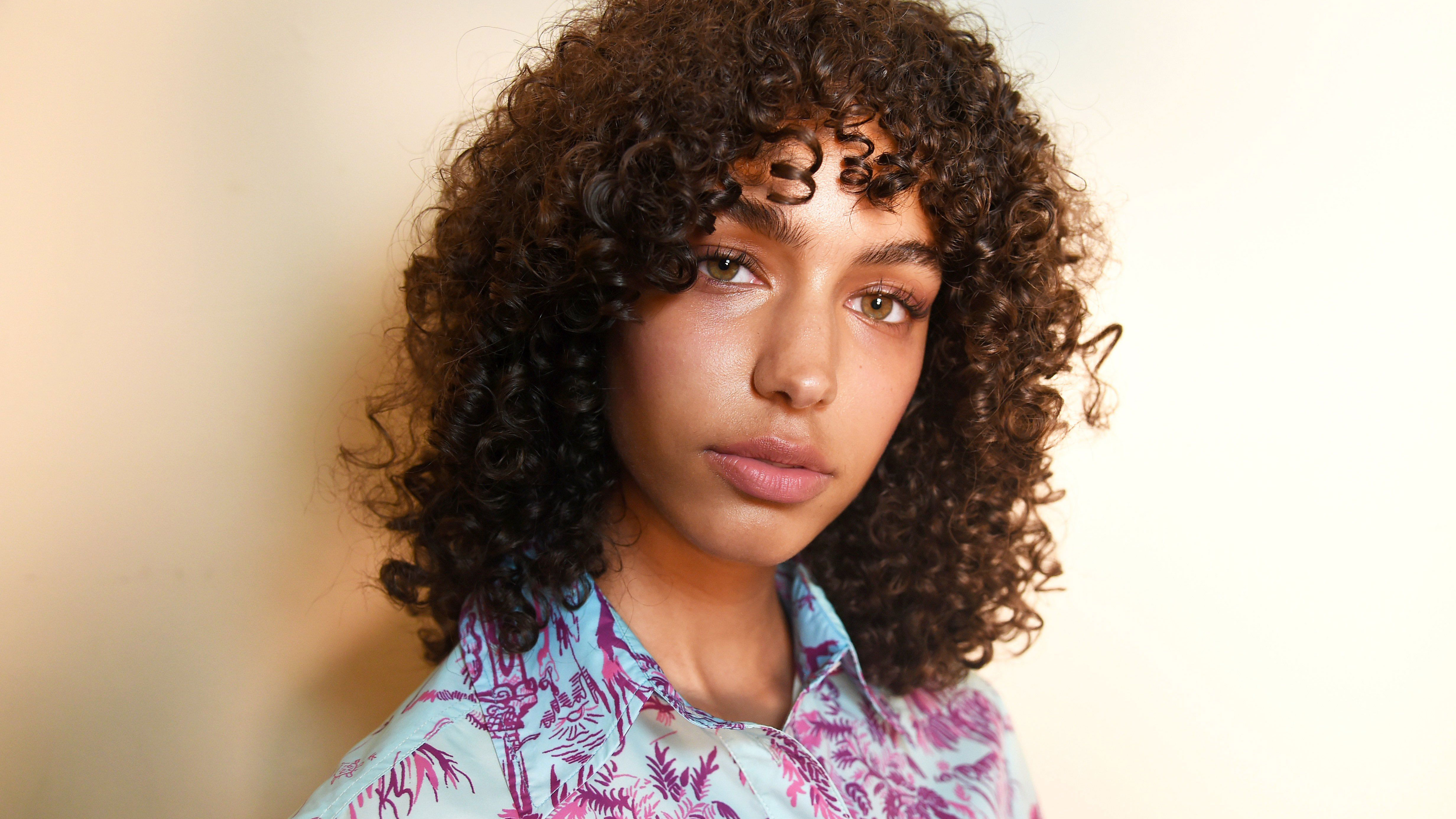

You’ve tried the best spot treatments, adjusted your skincare routine, and even amped up exfoliation—all derm-approved ways to help deal with breakouts. While drying products may seem more favorable (especially if you have oily skin), it’s just as important to hydrate with one of the best moisturizers for acne-prone skin. "Did you know that not using a moisturizer can cause even more breakouts?" celebrity facialist and board-certified aesthetician Renée Rouleau explains. "Bacteria breeds in oil. When moisturizer is avoided, the skin dehydrates and sets off a response to produce more oil. This can make existing breakouts last longer and creates a hospitable environment for new breakouts to form."
That being said, using a non-comedogenic, oil-free moisturizer morning and night is non-negotiable. “I tend to like lighter formulations, often gels, lotions, or more hybrid gel creams,” explains board-certified dermatologist Dr. Dhaval Bhanusali. To see which moisturizers the pros recommend—and check out some of our personal favorites—scroll on. We’ve rounded the best moisturizers for acne-prone skin, below.
What to Look For
If you have acneic or acne-prone skin, there are a few boxes you'll want your new moisturizer to check off. Most importantly, it needs to be non-comedogenic, which means it won't clog pores and contribute to acne. While most products will call this out on the label, you can also do a quick scan to ensure your product is oil free. “I tend to recommend against heavier products and 100 percent pure oil blends," says Dr. Bhanusali, urging people to look for lightweight formulations.
It's also a good idea to look for ingredients that can treat acne breakouts. While this isn't a necessity if you're using other acne treatment lotions, serums, or prescriptions, it can be a worthwhile addition if you're looking to streamline your routine. "Salicylic acid is an ingredient that helps prevent future acne pimples and also treats current pimples by dissolving blackheads and whiteheads," says New York-based dermatologist Rachel Nazarian, MD. In addition to salicylic acid, ingredients such as benzoyl peroxide, kojic acid, niacinamide, and AHAs like glycolic or lactic acid can be beneficial.
The Best Moisturizers for Acne-Prone Skin
- The Best Mattifying Moisturizer for Acne-Prone Skin: Augustinus Bader The Light Cream
- The Best Lightweight Moisturizer for Acne-Prone Skin: SkinFix Barrier+ Skin Barrier Restoring Gel
- The Best Salicylic Acid Moisturizer for Acne-Prone Skin: Proactiv Complexion Perfecting Hydrator
- The Best Moisturizer for Sensitive, Acne-Prone Skin: Bioderma Sebium Mat Control
- The Best Drugstore Moisturizer for Acne-Prone Skin: La Roche-Posay Effaclar Mat Face Moisturizer

"This is a wonderful choice for acne-prone skin because it's lightweight, and doesn’t occlude or block pores, and it contains 0.5 percent salicylic acid," says Dr. Nazarian. "Salicylic acid is a bacteriostatic ingredient and targets the bacteria that live on the skin and play a role in acne formation. This product also contains licorice root extract and kojic acid: Both improve the pigmented and dark marks that acne leaves behind."
Pros: Dermatologist-approved; Contains acne fighting ingredients
Cons: Might be drying; Not ideal for sensitive skin types
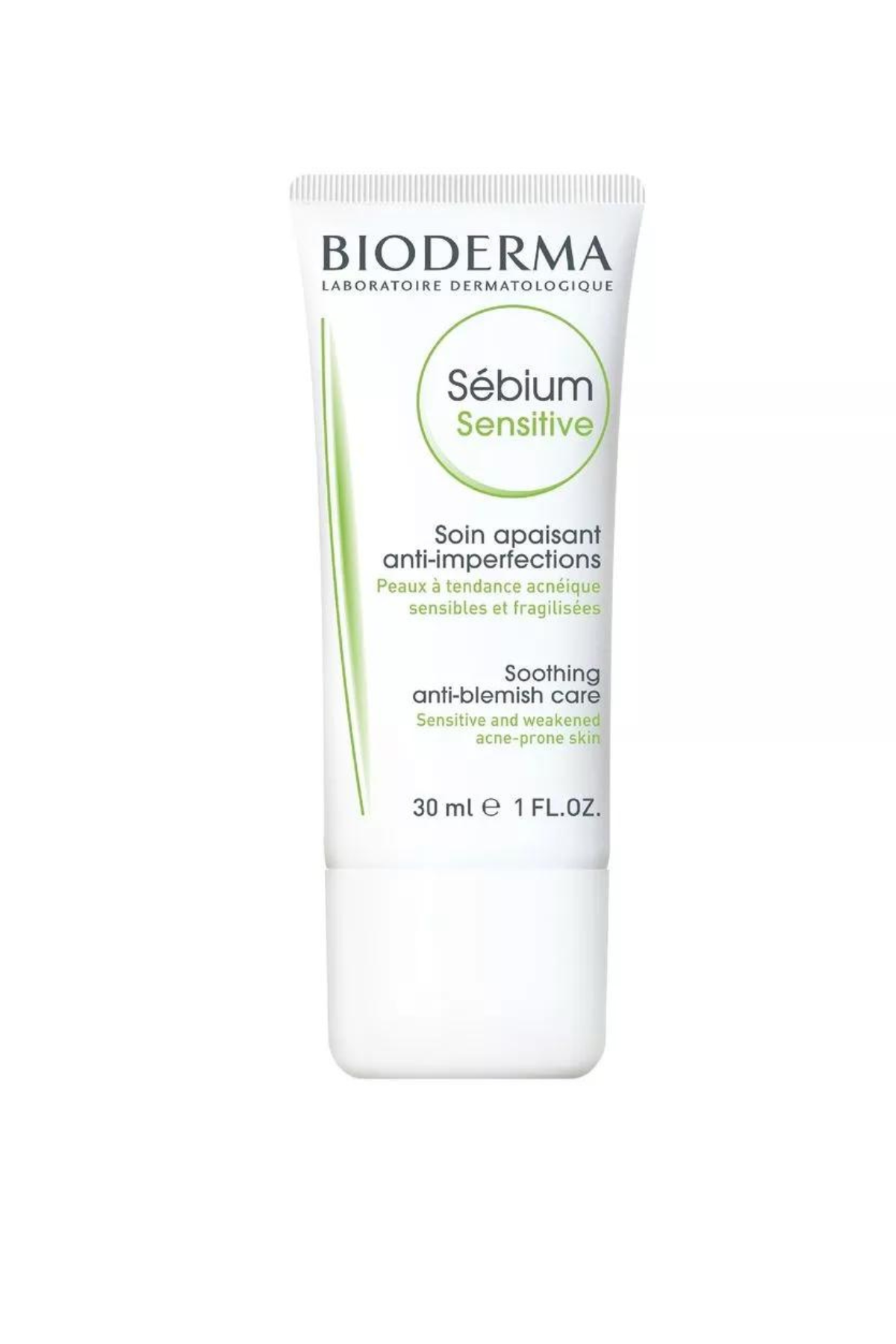
"Bioderma Sebium global is a great moisturizer for acne-prone skin," New York-based dermatologist Lily Talakoub, MD, says. "This moisturizer contains AHA esters, salicylic acid, and citric acid to reduce blemishes while zinc gluconate, combined with enoxolone, soothes and reduces redness caused by inflammation." What's more, the moisturizer offers shine control and a matte finish. On the downside though, it's not uber-hydrating, so it's probably not the best option for really dry skin types.
Pros: Dermatologist-approved; Great for sensitive skin; Contains salicylic acid
Cons: Needs to be reapplied often; Has a subtle scent
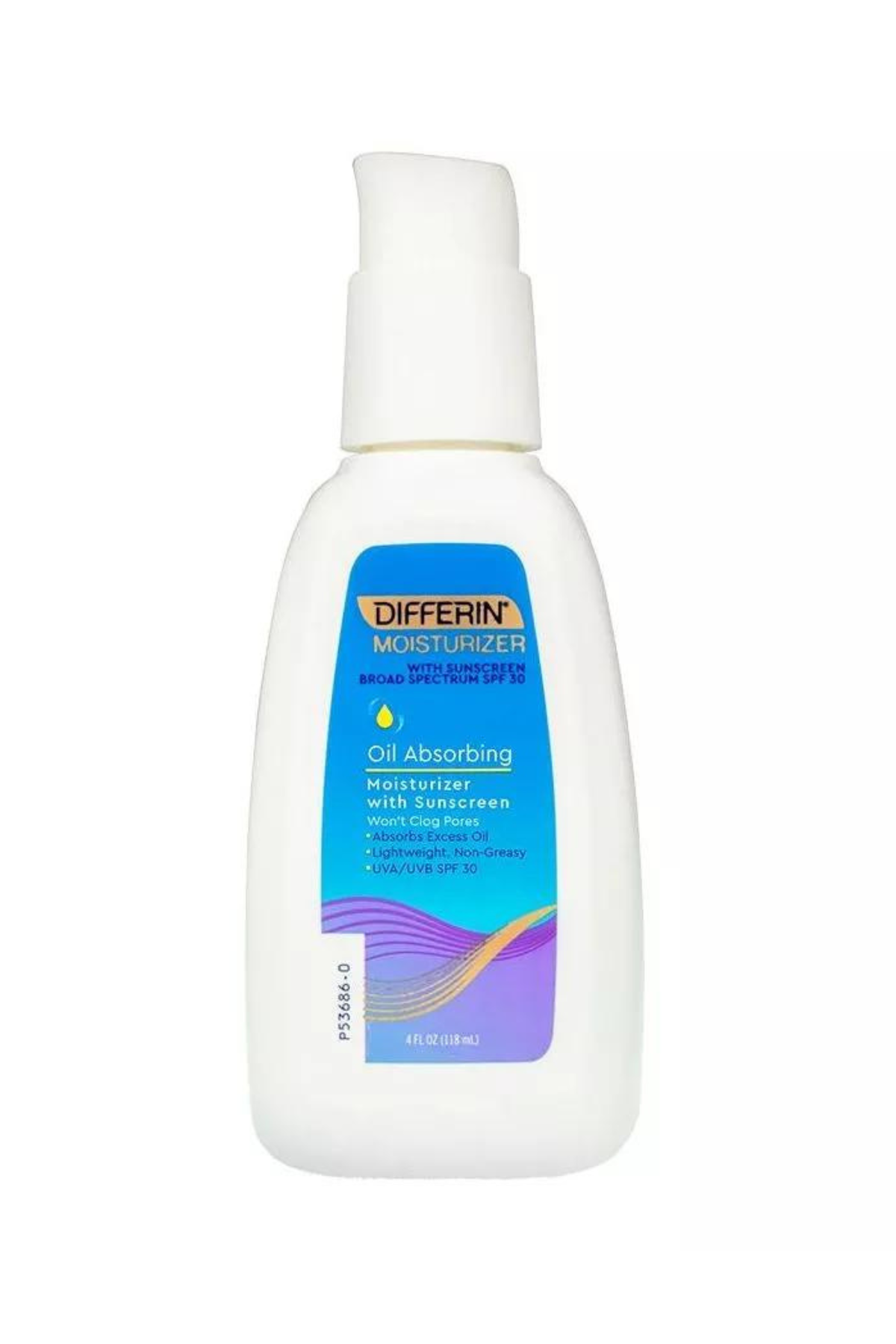
You might already be familiar with Differin from their retinoid acne treatment. So, who better than them to deliver a moisturizer for acne-prone skin? New York-based dermatologist Melissa Levin, MD., raves, "The Differin Oil Absorbing Moisturizer SPF 30 is great for those with acne-prone skin because it has a lightweight formula that contains Micropearl technology, which absorbs surface oil for a matte finish, while also providing protection against harmful UV radiation including UVA/UVB rays."
Pros: Dermatologist-approved; Contains SPF; Affordable
Cons: Might pill under makeup; Heavy feel
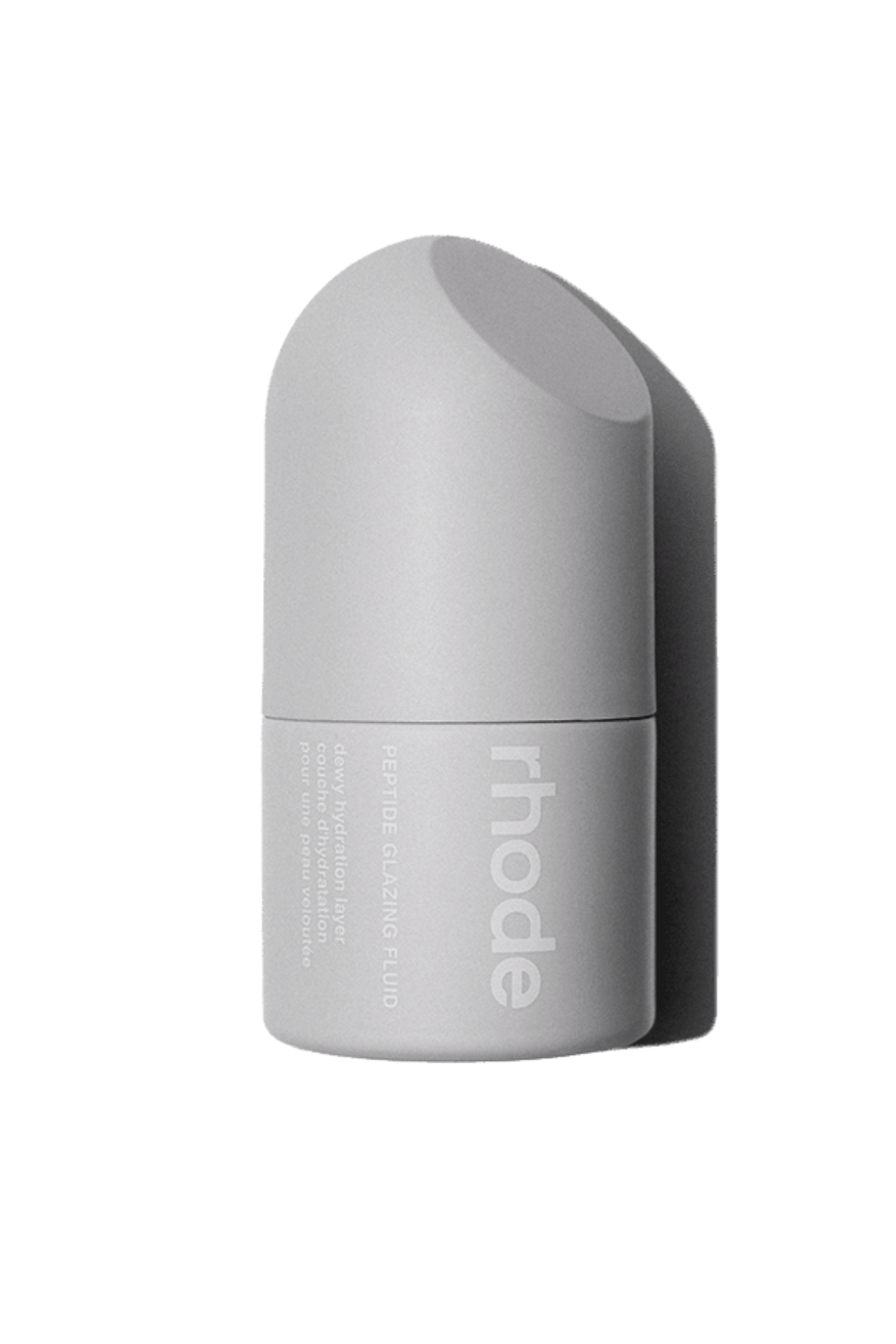
Act quick—this moisturizer has been selling out on repeat. According to Dr. Bhanusali, who helped develop the Hailey Bieber-founded line, it's “suitable for acne and oily skin,” because of its lightweight texture. But this isn’t just a great skincare product—it doubles as a natural highlighter too. Does the "glazed donut effect" ring a bell to anyone? While the reflective vibe can be achieved sans makeup, Bieber recommends tapping a little of this on top of foundation for an extra glow.
Pros: Dermatologist-approved; Lightweight
Cons: Might not be hydrating enough for some
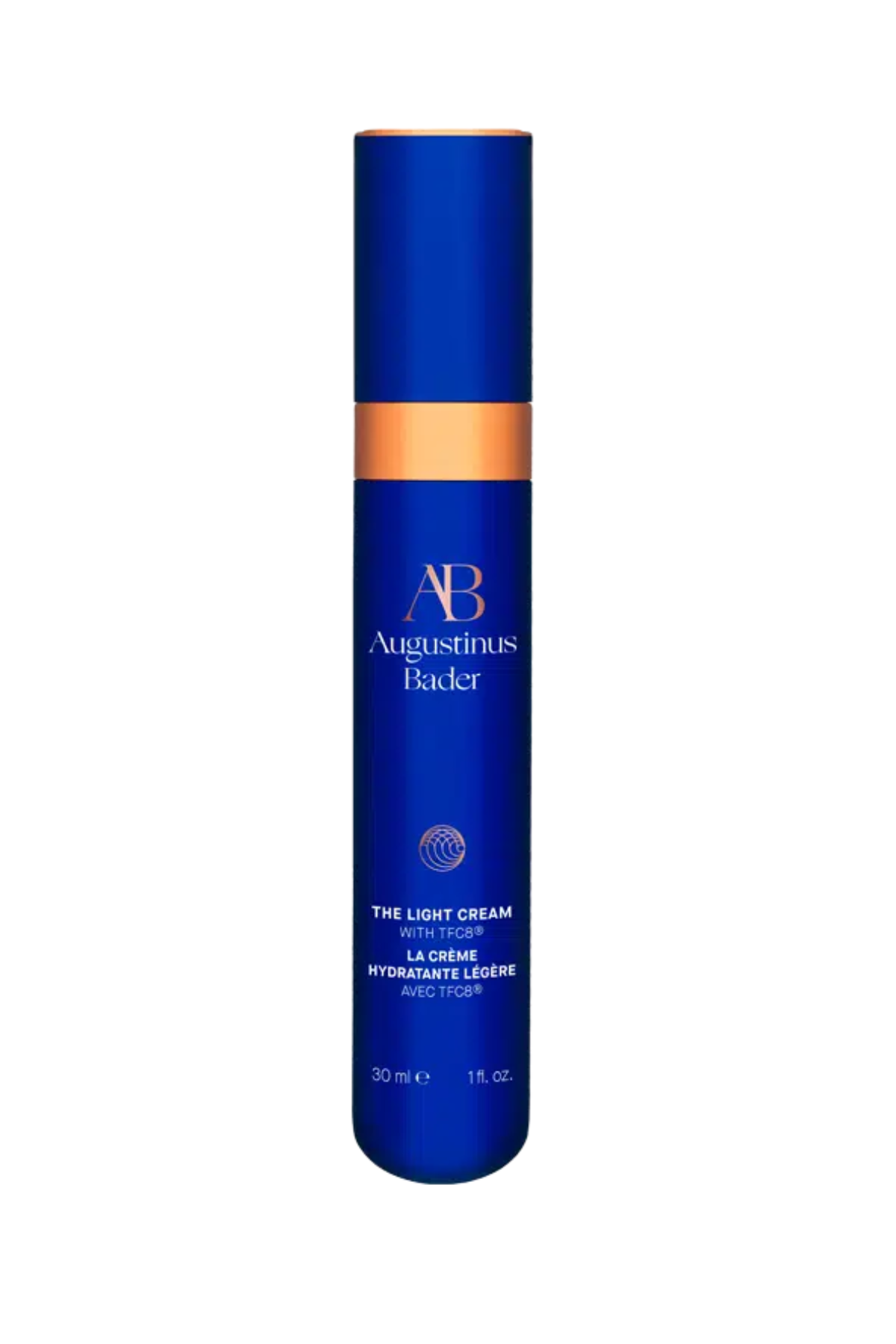
If excess oil is at the root of your acne breakouts, a mattifying moisturizer is going to be your saving grace. And leave it to the one and only Augustinus Bader to deliver a top-notch formula. This face cream, which is powered by something called Australian lemon myrtle extract, works to stop the overproduction of oil and control excess sebum. The biggest selling point however is the finish. It mattifies the skin and offers the perfect base for foundation—no primer necessary.
Pros: Balances oil production; Doubles as a primer
Cons: Expensive

The brand’s peptide cream has a loyal following among dry skin types (it has over 2,000 reviews on Sephora), and its newly launched gel cream is a must for acne-prone people. It has a solid list of ingredients, including ceramides and peptides, that will deliver on the hydration front. What’s more notable though, is what the formula avoids. There is no silicone, dimethicone, lanolin, or fragrance, meaning it’s less likely to contribute to breakouts.
Pros: Lightweight; Hydrating
Cons: A bit oily
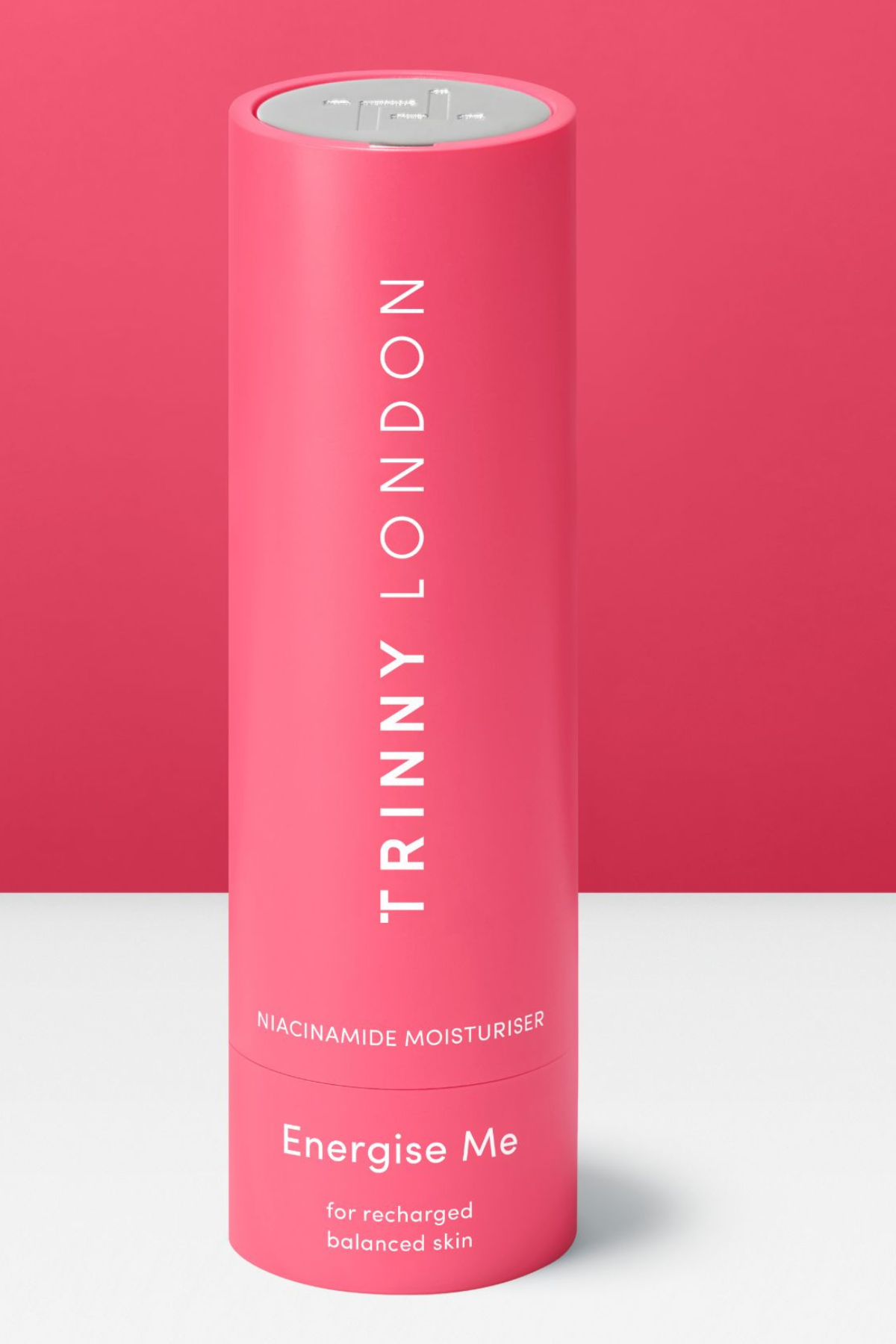
With niacinamide as the star ingredient, this moisturizer is going to help regulate your oil production, and in turn, might minimize your acne breakouts. Succinic acid also comes into play here. While it's not an ingredient you hear about every day, I promise it's one worth mentioning. Essentially, it perks up dull, tired, and dehydrated-looking skin to give you a radiant and healthy-looking complexion. This moisturizer is definitely hydrating (thank you, hyaluronic acid), but it's probably best for normal to oily skin types. My dry skin people might want to consider a different option.
Pros: Regulates oil products; Brightens skin
Cons: Not great for dry skin types; Has a scent
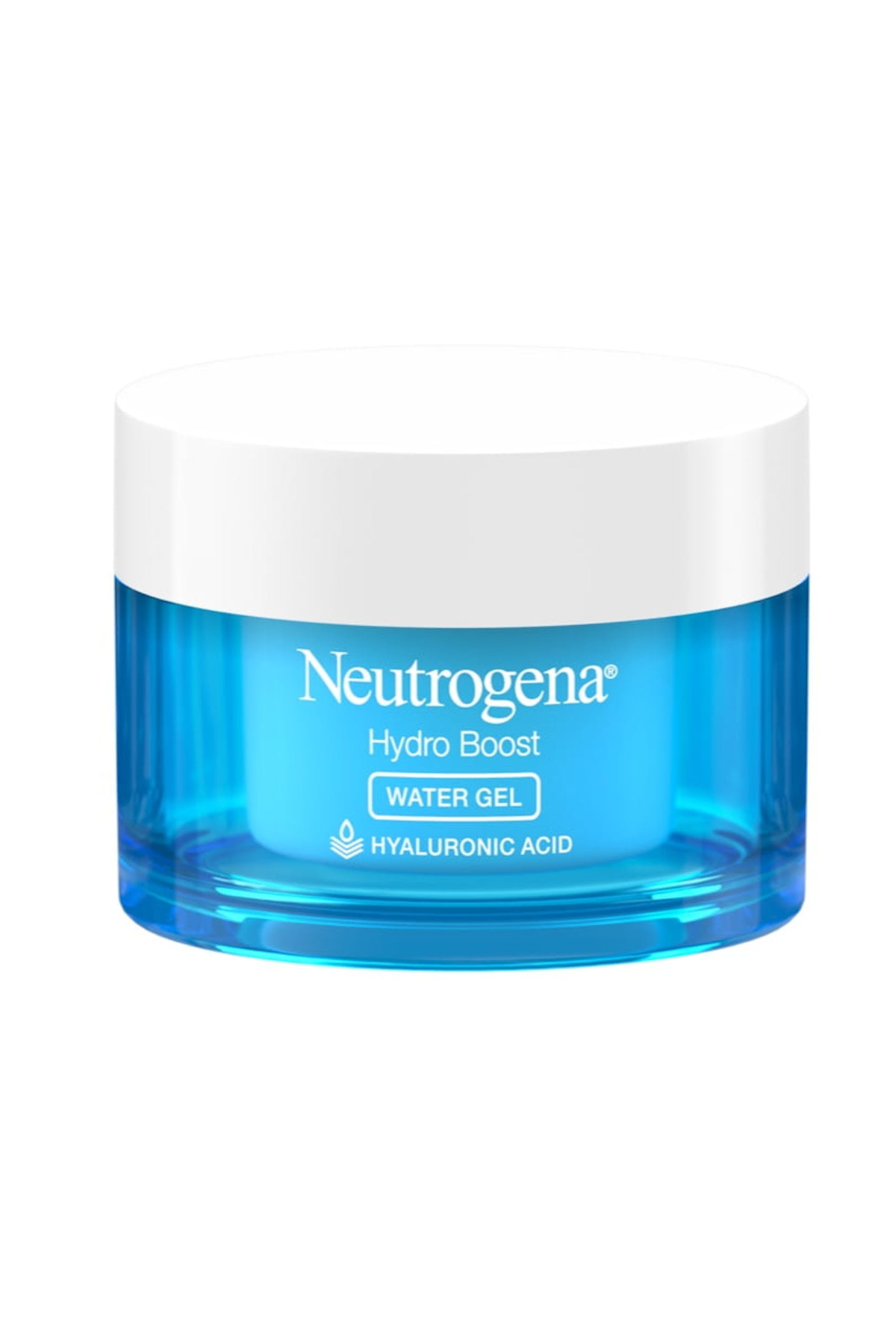
One of Dr. Bhanusali’s favorites, this cult-favorite, water-based moisturizer is a win for acne-prone skin types. It feels like air (don’t knock it 'til you try it), dries down in an instant, and feels breathable all day long. My personal favorite part about the product however is the finish. By and large, most moisturizers for acne-prone skin are going to have a matte finish. While that's great for people with really oily skin, others are going to want a little glow—and that's exactly what this moisturizer provides.
Pros: Dermatologist-approved; Lightweight; Affordable
Cons: Short-term hydration; Slight scent
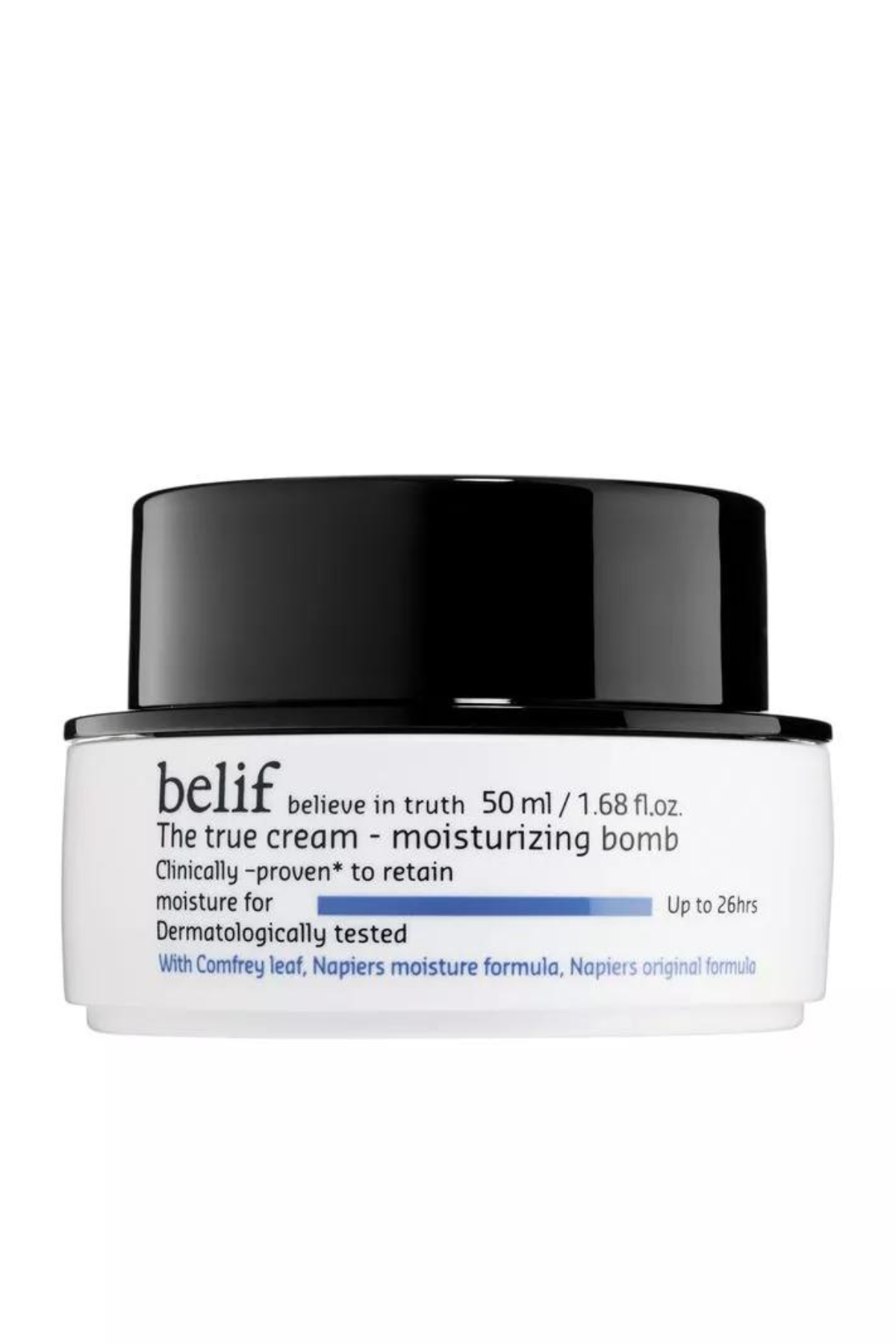
I used this moisturizer for years when I was dealing with acne, so I'll happily shout its praises. In the jar, it looks (and feels) like a bouncy gel. Because its so lightweight, intense hydration seems counterintuitive. But this little guy packs in serious moisture when it "bursts" on the skin. In fact, the ceramide- and glycerin-packed formula has been shown to increase skin's hydration by 70 percent (!!).
Pros: Lightweight; Redness reducing
Cons: Fragrance; Contains alcohol and not ideal for sensitive skin
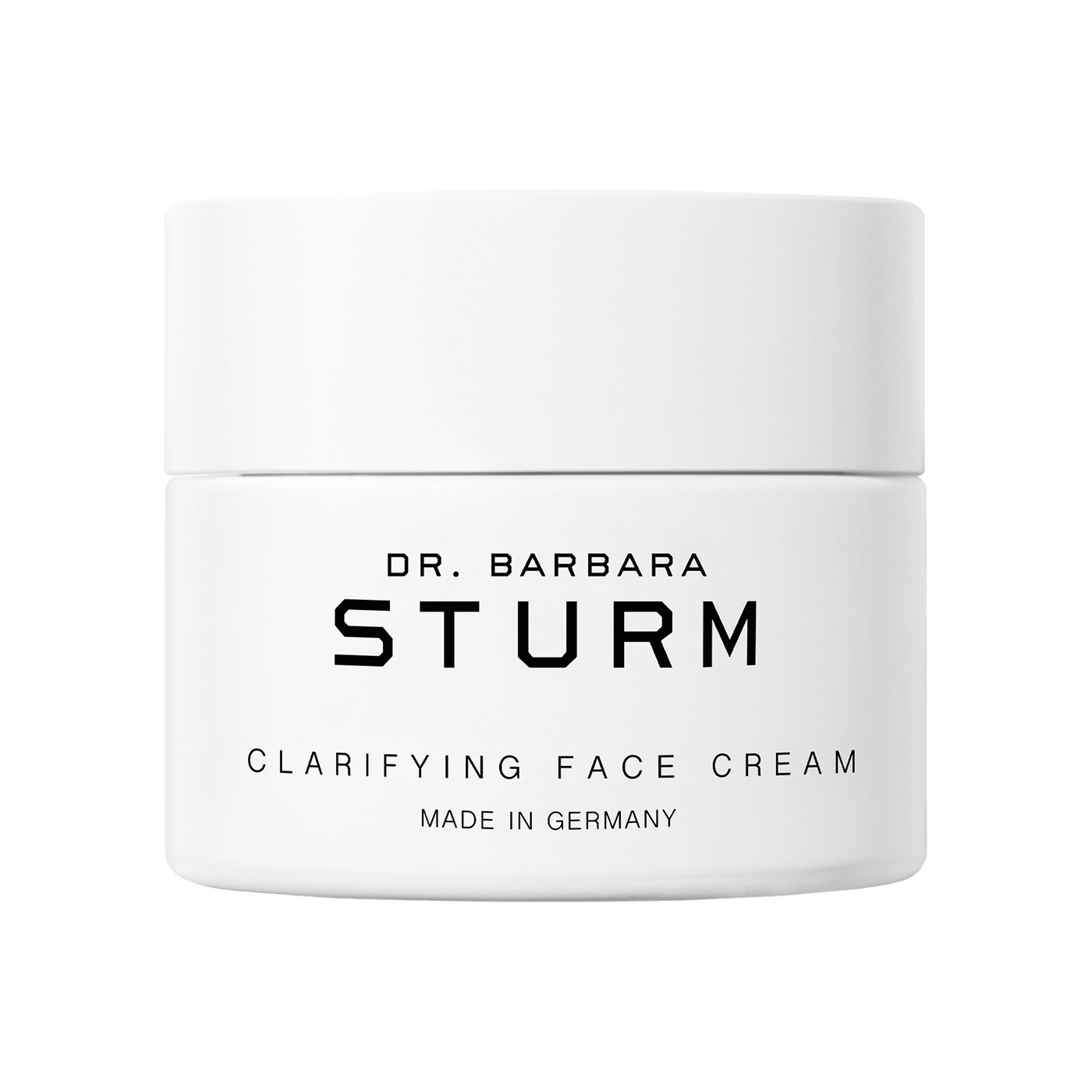
Just because you're out of puberty, doesn't mean you'll never experience a breakout again—adult acne is really common. The good news is, this cream is specially designed to address aging skin prone to pimples. It's packed with zinc to absorb excess oil and prevent breakouts, as well as a special complex of plant-based ingredients that tighten, firm, and even out the skin. It does have a pretty big price tag, but one jar should last you a few months.
Pros: Absorbs oil; Addresses anti-aging concerns
Cons: Expensive
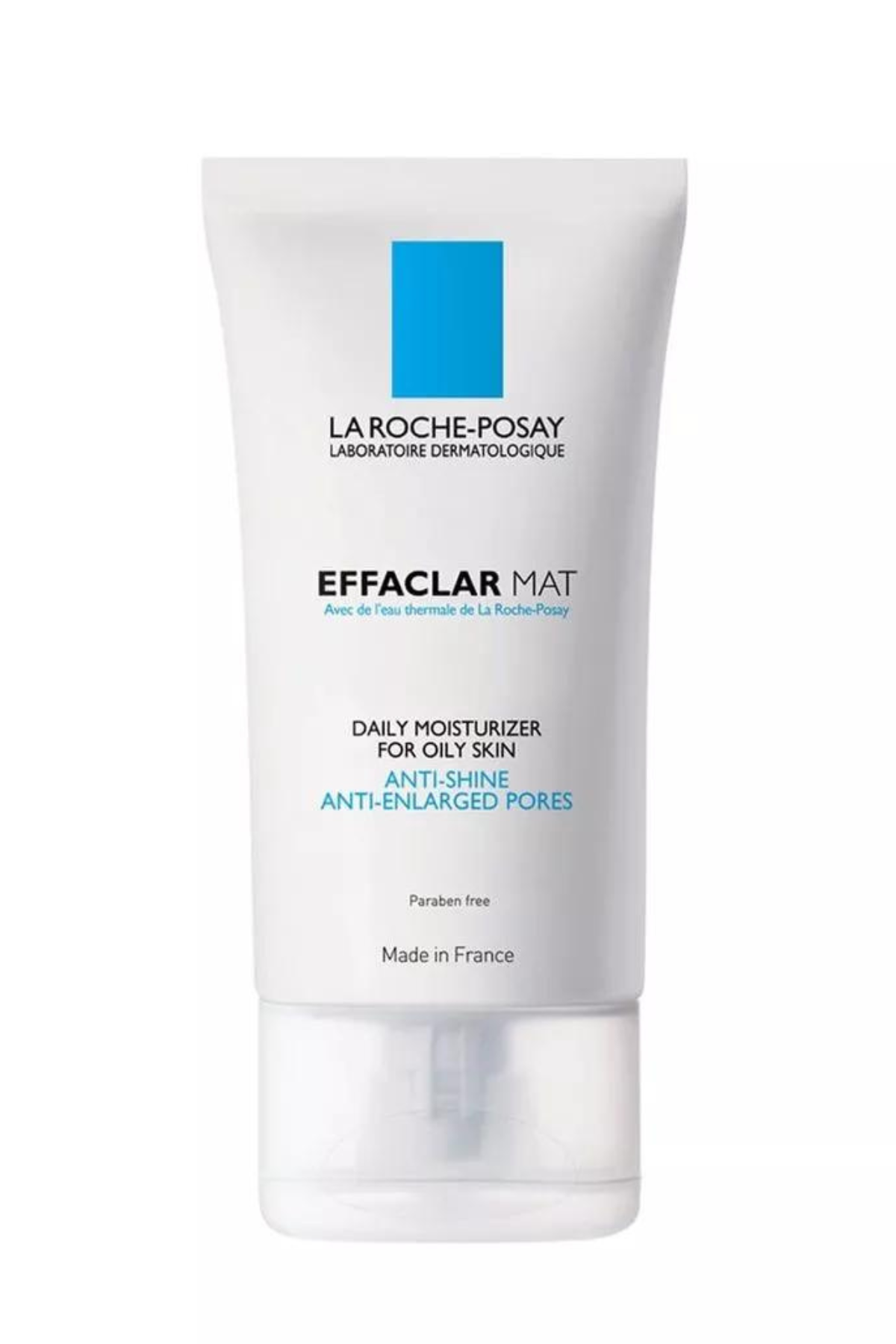
It's easy to see why this drugstore moisturizer is a dermatologist favorite. It leverages a proprietary lipo-hydroxy acid (aka an AHA) to clean out pores, control oil production, and mattify a slick complexion. You'll have no shine—it stands up well past the midday mirror check. In addition to being oil-free (a must for acne-prone skin types), it's also been formulated without any fragrance or parabens, so it shouldn't irritate sensitive skin types. Per the 800 reviews left on Ulta's website, it's safe to say people love this hydrator for its fast-absorbing, non-greasy texture and long-lasting hydration.
Pros: Available at the drugstore; Mattifying
Cons: Might pill; Heavy
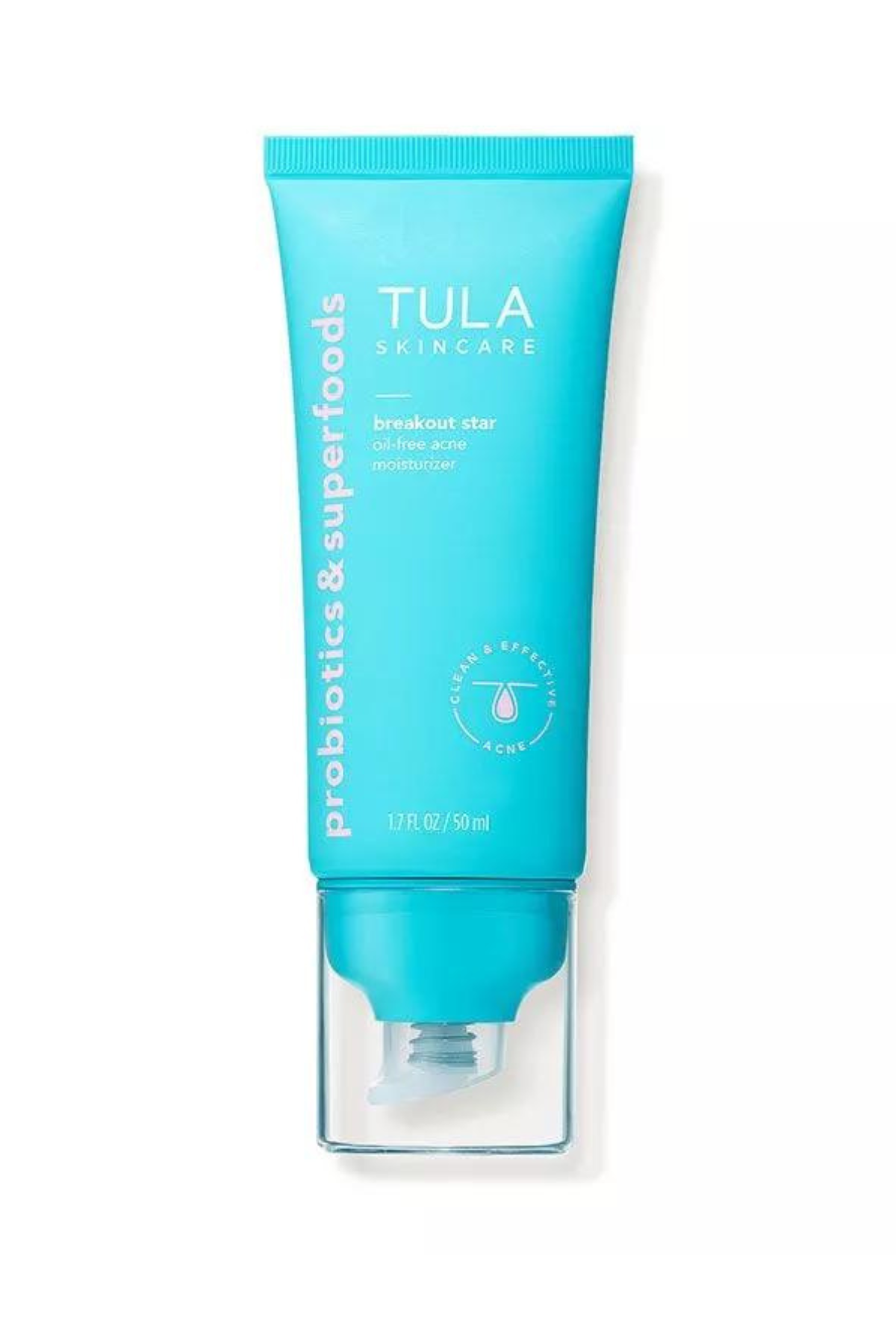
Treating acne is just half the battle—you also have to make sure that your breakouts heal properly. Keeping your hands away from your face is the best way to prevent scarring, but even then, you'll probably still have to deal with post-inflammatory hyperpigmentation. That's where this Tula moisturizer swoops in. It contains niacinamide and azelaic acid, both of which help to brighten hyperpigmentation. The formula is also oil-free and alcohol-free, making it a good option for sensitive skin types.
Pros: Contains salicylic acid; Helps prevent scarring
Cons: Tacky texture
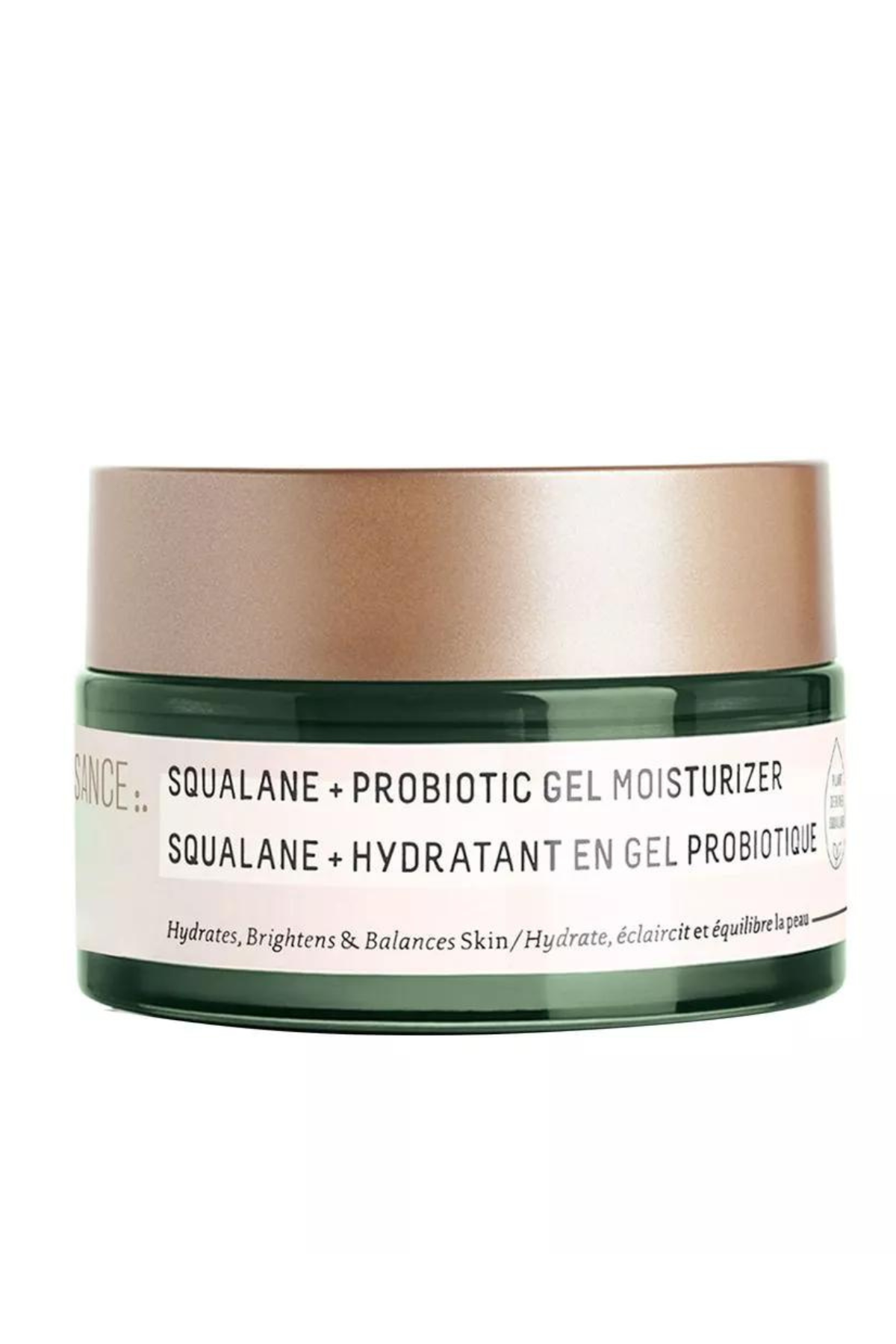
If you're dealing with the trifecta of rosacea, redness, and acne, there's no better option than this Biossance cream. In addition to being lightweight and non-comedogenic, it targets inflammation and irritation. Ginger extract and red seaweed tag team to calm the skin and create a more even tone. At the same time, it's going to balance the skin barrier with a hefty dose of squalane, which in turn will make future flairs less likely.
Pros: Good for redness and rosacea; Vegan; Hydrating
Cons: Expensive
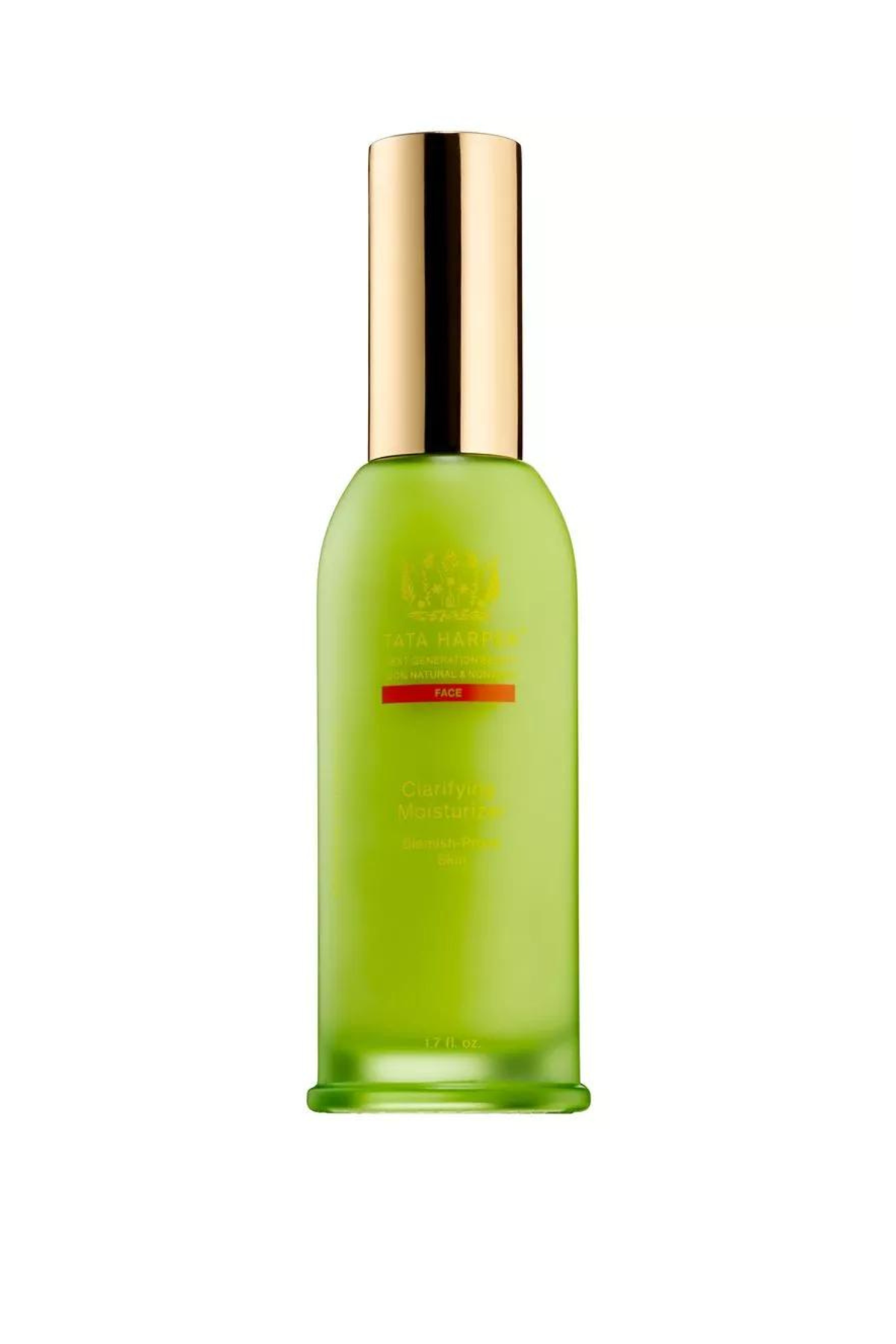
While there are plenty of great treatment products on the market that you can pair with a non-comedogenic moisturizer, this specific option is a one-stop shop. It's going to hydrate—yes. But it's also going to offer gentle exfoliation and balance oil control with beta-hydroxy acids and saw palmetto. The result? Smaller-looking pores, a brighter complexion, and, fingers crossed, less breakouts. As an added bonus, the moisturizer contains an ingredient that will calm down redness associated with acne.
Pros: Contains BHAs; Balances oil
Cons: Expensive
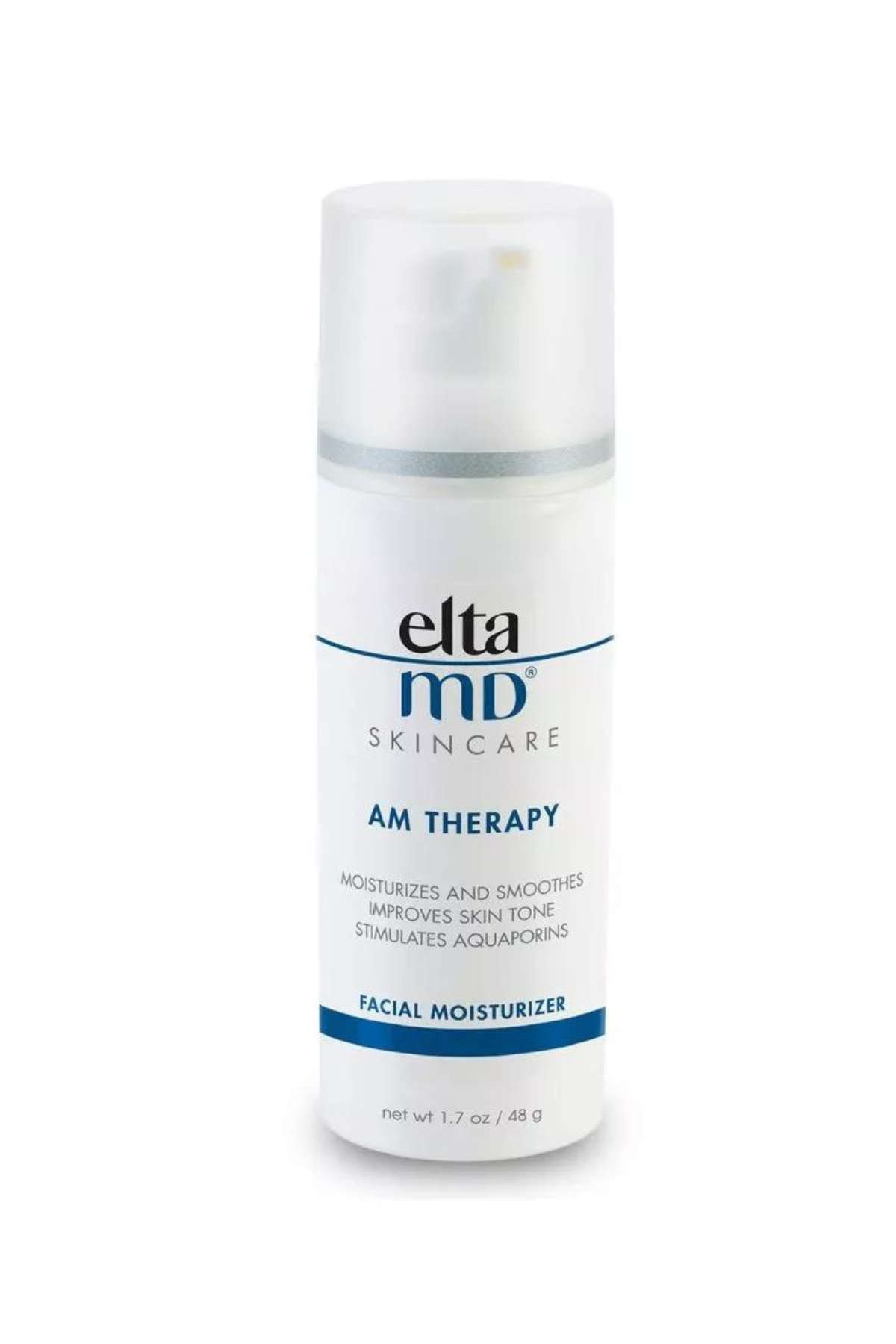
For a moisturizer that quite literally can do it all, reach for this EltaMD hydrator. In addition to having a non-comedogenic formula fortified with skin-brightening niacinamide, it has a host of anti-aging benefits. Rice protein peptides are responsible for boosting collagen and plumping up the appearance of fine lines. This product is best reserved for nighttime use though, so scoop up one of the others on this list to slather on in the A.M.
Pros: Lightweight; Multi-benefit
Cons: Shiny finish
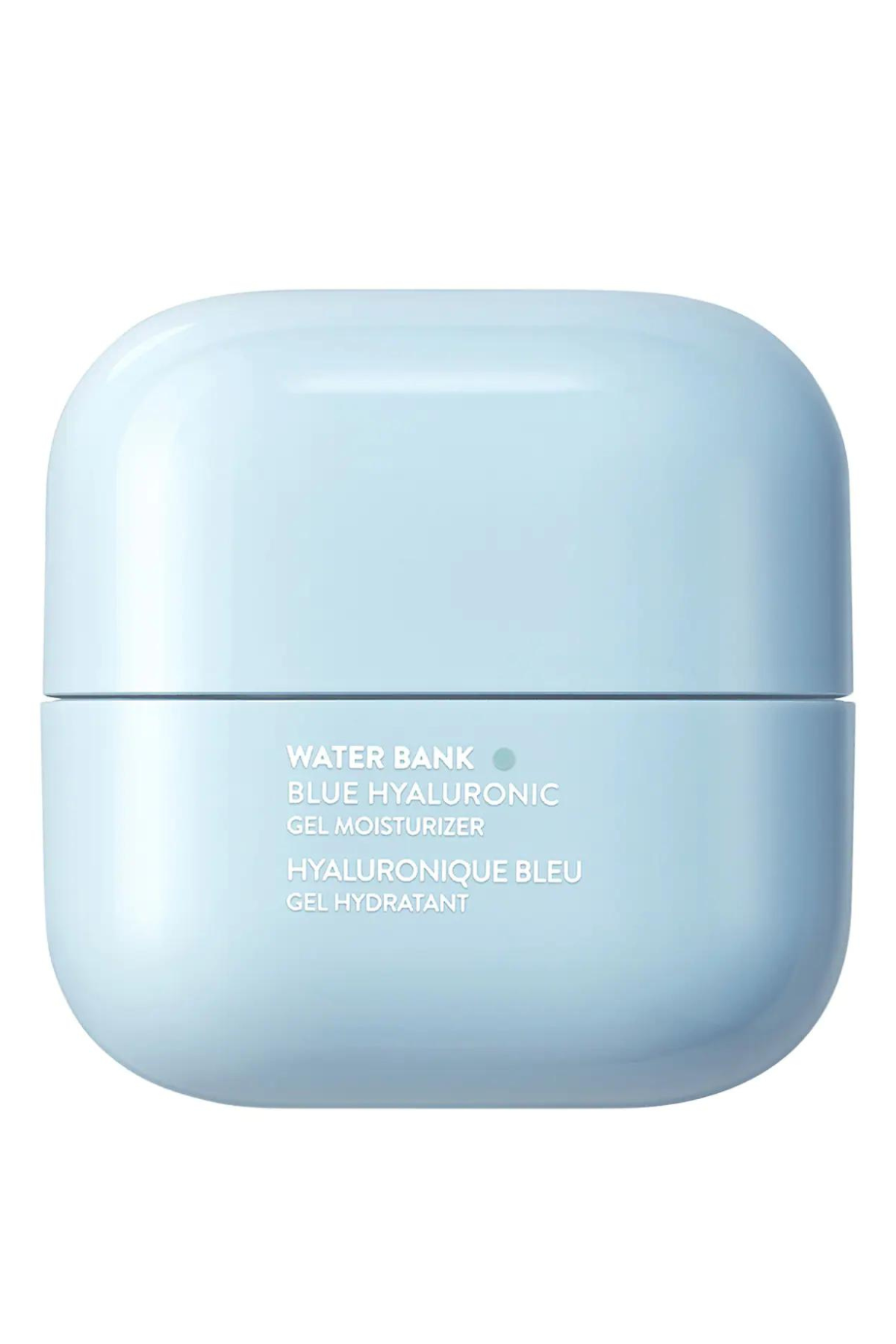
We love water-based moisturizers for their lightweight, non-oily feeling along with the powerful shot of hydration they provide. This best-selling formula, which was recently reformulated, incorporates unusual ingredients like brussels sprout, lima bean, and artichoke extract. The result? An effective antidote to that horrible combination of flaky-oily skin that so many of us struggle with. Despite having loads of positive reviews, it's worth noting that this moisturizer does have a pretty heavy rose fragrance.
Pros: Lightweight
Cons: Fragranced; Might cause pilling
Meet the Experts

Dr. Bhanusali is a board-certified Dermatologist based in NYC. After being accepted into medical school at 17, he completed his studies at the Michigan State University medical scholars program where he was also awarded the Spartan Scholarship and Arthur L Foley Memorial Scholarship. He went on to complete his Dermatology residency at Mount Sinai Hospital in NYC. He specializes in medical and cosmetic dermatology and looks to bridge the gap between cutting-edge technologies and established paradigms. Dr. Bhanusali was recently featured as the dermatologist behind Amazon’s first skincare line, launched globally in 2019, and currently serves as a medical expert for many companies in the field, including Johnson& Johnson (Neutrogena, ROC, Clean & Clear, Aveeno) and Solta (Fraxel, Clear & Brilliant, Pelo).
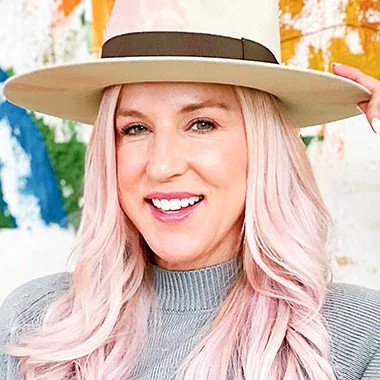
A life-long skin enthusiast, Renée Rouleau has dedicated 30+ years to the art of skin perfection. She’s considered a complexion coach and blemish-busting hero by many thanks to her magical touch and ability to make skin concerns quickly disappear. Renée knows that great skin is rarely achieved with a “one size fits all” viewpoint. Throughout her career, Renée has worked with clients who trust her and demand the utmost in skincare. This makes her the go-to expert for many of today’s most skin enviable personalities including Demi Lovato, Lili Reinhart and Madelaine Petsch. She is also on the advisory board for Woman @ Austin. This is an organization that is on a mission to advance women entrepreneurs striving to grow their companies; and she is a member of the Austin chapter of EO (Entrepreneurs’ Organization.)

Dr. Rachel Nazarian joins Schweiger Dermatology after years of practicing various aspects of dermatology, including cosmetic treatments, skin cancer, general dermatology and dermatologic surgery.Dr. Nazarian has written many published articles in medical journals as well as widely respected dermatology textbooks, such as Treatment of Skin Disease.Dr. Nazarian serves as a faculty member at Mount Sinai Medical Center’s Department of Dermatology, where she completed her dermatology residency. While completing her medical degree at Tulane University School of Medicine, Dr. Nazarian was awarded a grant from the Women’s Dermatology Society. Dr. Nazarian is a board certified dermatologist and Fellow of the American Academy of Dermatology.

Known for her honesty and love for bespoke medical and cosmetic skin solutions, Dr. Levin has established a loyal following of patients from all walks of life - entire families, skincare enthusiasts, actors, designers, beauty editors, physicians, lawyers, teachers, and many more. As a native Californian, Dr. Levin graduated summa cum laude from the University of California of Los Angeles (UCLA) and earned her medical degree from the University of California of San Francisco (UCSF), as a member of the highest honor society, Alpha Omega Alpha. She completed her internship at the California Pacific Medical Center and dermatology residency at New York University Langone Health.
Get exclusive access to fashion and beauty trends, hot-off-the-press celebrity news, and more.

Samantha Holender is the Senior Beauty Editor at Marie Claire, where she reports on the best new launches, dives into the science behind skincare, and shares the breakdown on the latest and greatest trends in the beauty space. She's studied up on every ingredient you'll find on INCI list and is constantly in search of the world's glowiest makeup products. She's constantly tracking the biggest nail and hair trends to pop up in the beauty space, going backstage during fashion weeks, tracking celebrity looks, and constantly talking to celebrity hair stylists, nail artists, and makeup artists. Prior to joining the team, she worked as Us Weekly’s Beauty and Style Editor, where she stayed on the pulse of pop culture and broke down celebrity beauty routines, hair transformations, and red carpet looks. Her words have also appeared on Popsugar, Makeup.com, Skincare.com, Delish.com, and Philadelphia Wedding. Samantha also serves as a board member for the American Society of Magazine Editors (ASME). She first joined the organization in 2018, when she worked as an editorial intern at Food Network Magazine and Pioneer Woman Magazine. Samantha has a degree in Journalism and Mass Communications from The George Washington University’s School of Media and Public Affairs. While at GWU, she was a founding member of the school’s HerCampus chapter and served as its President for four years. When she’s not deep in the beauty closet or swatching eyeshadows, you can find her obsessing over Real Housewives and all things Bravo. Keep up with her on Instagram @samholender.